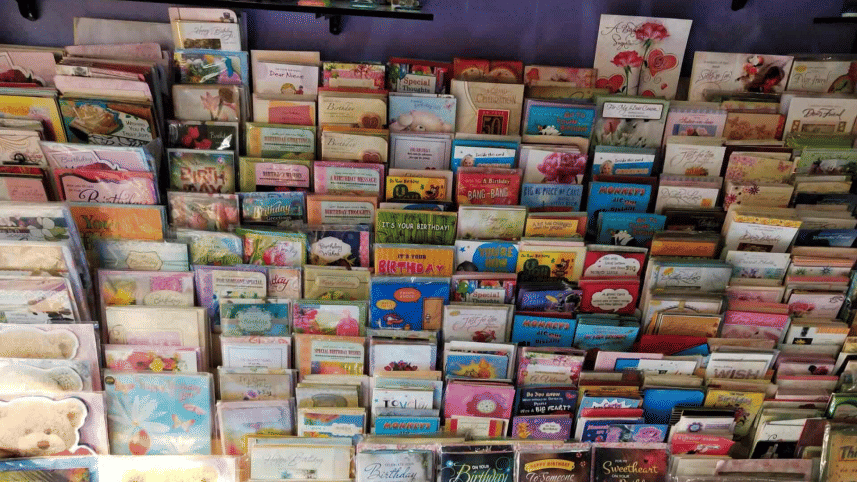How Eid greetings changed from traditional cards to online greetings

Let's unwind the pages of time to the 2000s and early to mid-2010s when Eid was synonymous with Eid cards. Both young and old would collect, gift, and even sell these heartfelt tokens, each card holding a special memory for the receiver and the giver. During Ramadan and before Eid-ul-Adha, makeshift stores would pop up in alleys, in front of schools, colleges, and road intersections. These spots, bustling with activity, would sell Eid cards priced anywhere from 2 taka to 50, adorned with poems, rhymes, and funny pictures. The more vivid, the better.
Those who lived through these traditional practices feel profound nostalgia. Monoara Parvin, a 48-year-old homemaker, shares her memories: "I remember as kids we used to make Eid cards for family and friends, and then my kids bought Eid cards in the 2000s." Sadly, the custom of gifting Eid cards to friends and family as part of the annual celebration around Eid has long since passed, gradually fading into antiquity and disappearing. Once a vibrant ritual, the exchange of Eid cards brought people closer. It encapsulated emotions and shared joy at a time when digital mediums weren't there.
Now, in the age of the internet and social media, many folks often see physical Eid cards as redundant, leading to their decline in sales. Even leading card production companies like Azad or Ideal Products rarely keep them in store. "No, we don't sell Eid cards anymore; there simply aren't enough customers interested in these products," a shopkeeper from Azad Products shares.
This sentiment echoes across what was once a thriving market for Eid greetings. Since then, the market has moved towards a corporate client base. Akash, a shopkeeper at another card-selling shop, adds, "We have a few samples, but they are mostly to show our corporate customers, and even if a usual customer sees them, there's a meagre chance they'll buy it."
The dip in sales has affected everyone in the business, from large companies to seasonal street vendors. Sojib, a street vendor, shares his experience with a touch of nostalgia: "Before, during Eid, we'd set up card stalls on the street. It was a great way to earn extra cash before Eid. Sadly, that demand has dwindled a lot over the last decade."
Even those who grew up with the tradition but now embrace the efficiency of digital alternatives feel a twitch of nostalgia. Md. Tanvir Rounak Anjum, a graduate student and a global marketing analyst at Puma, reflects, "I miss the times when I was in kindergarten collecting and sharing traditional Eid cards with my friends and family. Those are memories I will cherish forever." Due to residing abroad, Tanvir finds solace in digital greetings: "As someone who lives abroad, digital mediums like bKash or social media platforms allow me to be somewhat present in sharing happiness with my loved ones during Eid."
But the story isn't entirely one-sided. While it might seem like a clear case of digital efficiency overshadowing tradition, the truth is, at some point, there simply weren't any physical stores left selling them. Naveed Abrar, an undergraduate student at BUP, notes, "When they used to sell these cards outside my school, I'd buy them. But nowadays I don't see them anywhere. So, I just use bKash's Eid cards. For me, it's the same level of happiness."
At the end of the day, Eid has always been about sharing happiness. While digital greetings can't replicate the tactile joy of a handwritten card, they offer a new form of connection. Fast, cost-efficient, and remote, a connection of efficiency set for the digital world. As technology moves forward and we move forward with it, the challenge will be to retain the essence of Eid's joy and sharing. Whether through traditional cards or digital messages, the most important thing is to keep our vibrant culture alive with love and happiness during this transition.




 For all latest news, follow The Daily Star's Google News channel.
For all latest news, follow The Daily Star's Google News channel.
Comments